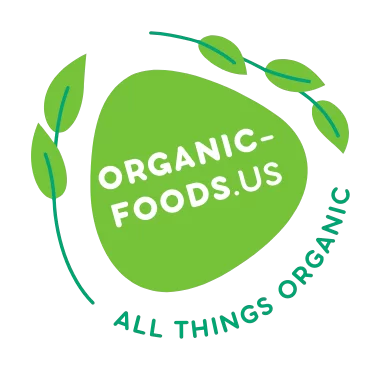Exploring Organic Foods for High-Potency Vitamin C
Vitamin C, also known as ascorbic acid, is a vital nutrient that plays a significant role in maintaining our immune system, aiding in the absorption of iron, and supporting overall health. While vitamin C supplements are widely available, many people prefer to get their nutrients from organic foods, which are often considered to be more potent and beneficial. In this article, we’ll explore some of the best organic foods that are rich in high-potency vitamin C, helping you make informed choices for a healthier lifestyle.
The Power of Vitamin C in Organic Foods
Organic foods are grown without synthetic pesticides, fertilizers, or genetically modified organisms (GMOs), which many believe can lead to a higher nutrient density. Vitamin C, being a water-soluble vitamin, is particularly sensitive to environmental stressors and can be affected by the way food is grown and processed. By choosing organic, you’re not only reducing your exposure to harmful chemicals but also potentially increasing your intake of this essential nutrient.
Research has shown that organic produce can have higher levels of vitamin C compared to conventionally grown counterparts. For instance, a study conducted by the University of California, Davis, found that organic kiwifruit had significantly higher levels of vitamin C than non-organic kiwifruit Organic vs. Conventional Kiwifruit Study. This underscores the importance of choosing organic sources for your vitamin C intake.
Top Organic Foods Rich in Vitamin C
Let’s dive into some of the top organic foods that are packed with high-potency vitamin C. These foods not only provide a natural source of this essential nutrient but also come with a host of other health benefits.
Organic Acerola Cherries
Acerola cherries are a powerhouse when it comes to vitamin C. Just one acerola cherry can contain up to 80mg of vitamin C, which is more than the daily recommended intake for adults. These cherries are not only delicious but also versatile, making them a great addition to smoothies, juices, or even eaten fresh. Their high antioxidant content also helps combat oxidative stress, making them a fantastic choice for overall health.
Organic Camu Camu
Camu camu, a fruit native to the Amazon rainforest, is another incredible source of vitamin C. With up to 2,800mg of vitamin C per 100 grams, camu camu is one of the richest natural sources of this nutrient. It’s often used in powdered form, making it easy to incorporate into your diet. Whether you add it to your morning smoothie or mix it into your yogurt, camu camu is a potent way to boost your vitamin C intake.
Organic Bell Peppers
Bell peppers, especially the red and yellow varieties, are excellent sources of vitamin C. A single medium-sized red bell pepper can provide over 150% of your daily vitamin C needs. They’re also rich in other antioxidants like beta-carotene, making them a colorful and nutritious addition to any meal. Whether you enjoy them raw in salads or cooked in stir-fries, organic bell peppers are a tasty way to get your vitamin C fix.
Organic Kale
Kale has gained popularity as a superfood, and for good reason. This leafy green is not only high in vitamin C but also packed with other essential nutrients like vitamin K, fiber, and antioxidants. A cup of raw kale contains about 80mg of vitamin C, making it an excellent choice for boosting your immune system. You can enjoy kale in salads, smoothies, or even as a crispy snack when baked into chips.
Organic Oranges
Oranges are perhaps the most well-known source of vitamin C, and for good reason. A single medium-sized orange can provide over 70mg of vitamin C, which is more than enough to meet your daily needs. Organic oranges not only offer high-potency vitamin C but also come with a refreshing taste that makes them a favorite among all ages. Whether you enjoy them as a snack or squeeze them into a glass of fresh juice, oranges are a delicious way to boost your vitamin C intake.
Comparing Vitamin C Content in Organic Foods
To give you a better idea of the vitamin C content in these organic foods, here’s a comparison table:
| Food | Vitamin C per Serving | Percentage of Daily Value* |
| Organic Acerola Cherry (1 cherry) | 80mg | 89% |
| Organic Camu Camu (100g) | 2,800mg | 3,111% |
| Organic Red Bell Pepper (1 medium) | 152mg | 169% |
| Organic Kale (1 cup, raw) | 80mg | 89% |
| Organic Orange (1 medium) | 70mg | 78% |
*Based on a daily value of 90mg for adult men and 75mg for adult women.
Incorporating Organic Vitamin C Foods into Your Diet
Now that you know which organic foods are rich in vitamin C, let’s talk about how to incorporate them into your daily diet. Here are some practical tips to help you boost your vitamin C intake naturally:
Start Your Day with a Vitamin C Boost: Begin your morning with a smoothie that includes organic acerola cherries or camu camu powder. Blend them with some organic kale and a splash of orange juice for a delicious and nutritious start to your day.
Snack Smart: Keep organic bell peppers and oranges on hand for a quick and healthy snack. They’re easy to pack and perfect for munching on the go.
Enhance Your Meals: Add organic kale to your salads, soups, or stir-fries. It’s a versatile ingredient that can be used in a variety of dishes, making it easy to increase your vitamin C intake throughout the day.
Juice It Up: If you have a juicer, consider making fresh organic juices with a mix of bell peppers, oranges, and other vitamin C-rich fruits and vegetables. This is a refreshing way to get a concentrated dose of vitamin C.
By incorporating these organic foods into your diet, you’ll not only boost your vitamin C intake but also enjoy a variety of flavors and health benefits. Remember, the key to a healthy diet is variety, so mix and match these foods to keep your meals interesting and nutritious.
The Benefits of Choosing Organic
Choosing organic foods for your vitamin C intake comes with several benefits beyond just higher nutrient levels. Organic farming practices are better for the environment, reducing pollution and promoting biodiversity. Additionally, organic foods are free from synthetic pesticides and fertilizers, which can be harmful to your health over time.
A study published in the British Journal of Nutrition found that organic crops have higher antioxidant levels, including vitamin C, compared to conventionally grown crops Organic vs. Conventional Crops Study. This suggests that choosing organic can provide you with more potent and beneficial nutrients.
Moreover, organic foods often taste better due to the natural growing methods used. This can make it easier to stick to a healthy diet, as you’re more likely to enjoy the foods you’re eating. So, not only are you getting a high-potency dose of vitamin C, but you’re also supporting sustainable farming practices and enjoying delicious, wholesome foods.
Conclusion
Incorporating organic foods rich in high-potency vitamin C into your diet is a smart way to boost your immune system and overall health. From acerola cherries and camu camu to bell peppers, kale, and oranges, there are plenty of delicious options to choose from. By making these foods a regular part of your diet, you’ll not only meet your vitamin C needs but also enjoy the numerous other health benefits that come with eating organic.
Remember, the key to a healthy diet is variety and balance. So, mix and match these vitamin C-rich foods to keep your meals interesting and nutritious. And don’t forget, choosing organic isn’t just good for your health—it’s also good for the planet. So, next time you’re at the grocery store, reach for those organic options and give your body the high-potency vitamin C it deserves.
For more information on the benefits of organic foods and how to incorporate them into your diet, check out this comprehensive guide from the Organic Trade Association Organic 101 Guide.

